UCLA Center for Community Schooling: Partnering to Make California’s Vision for Community Schools a Reality

By John McDonald
November 12, 2024
Read the magazine view of this article
In recent years, California has approved a $4.1 billion investment to expand and accelerate the development of community schools with a focus on whole-child education across the state.
The legislation defines a community school in the education code as a public school “with strong and intentional community partnerships ensuring pupil learning and whole child and family development,” and specifically includes the following educational elements:
- Integrated support services
- Family and community engagement
- Collaborative leadership and practices for educators and administrators
- Extended learning time and opportunities
The legislation established the California Community Schools Partnership Program (CCSPP) to “build a cohesive statewide approach that mitigates the disparate impacts of COVID-19 on student learning, cognitive and social development, and emotional well-being.” The CCSPP legislation also established a State Transformational Assistance Center (S-TAC) as well as Regional Technical Assistance Centers to support the development and expansion of community schools across the state.
Key to the CCSPP program are Planning Grants for local education agencies of up to $200,000 and Implementation Grants for new community schools or the expansion or continuation of existing community schools of up to $500,000 annually. To date, the CCSPP has awarded $2.6 billion in grants to nearly 500 local education agencies and more than 2,000 schools in support of community schooling.
Acknowledging its experience in the development of the groundbreaking UCLA Community School at the Robert F. Kennedy Education Complex in Los Angeles, the California Department of Education selected the UCLA Center for Community Schooling to serve as a lead partner in the CCSPP State Transformational Assistance Center. Joining with the Alameda County Office of Education, the National Education Association (NEA), and Californians for Justice, the Center is providing a range of support and technical assistance to the program and its grantees.
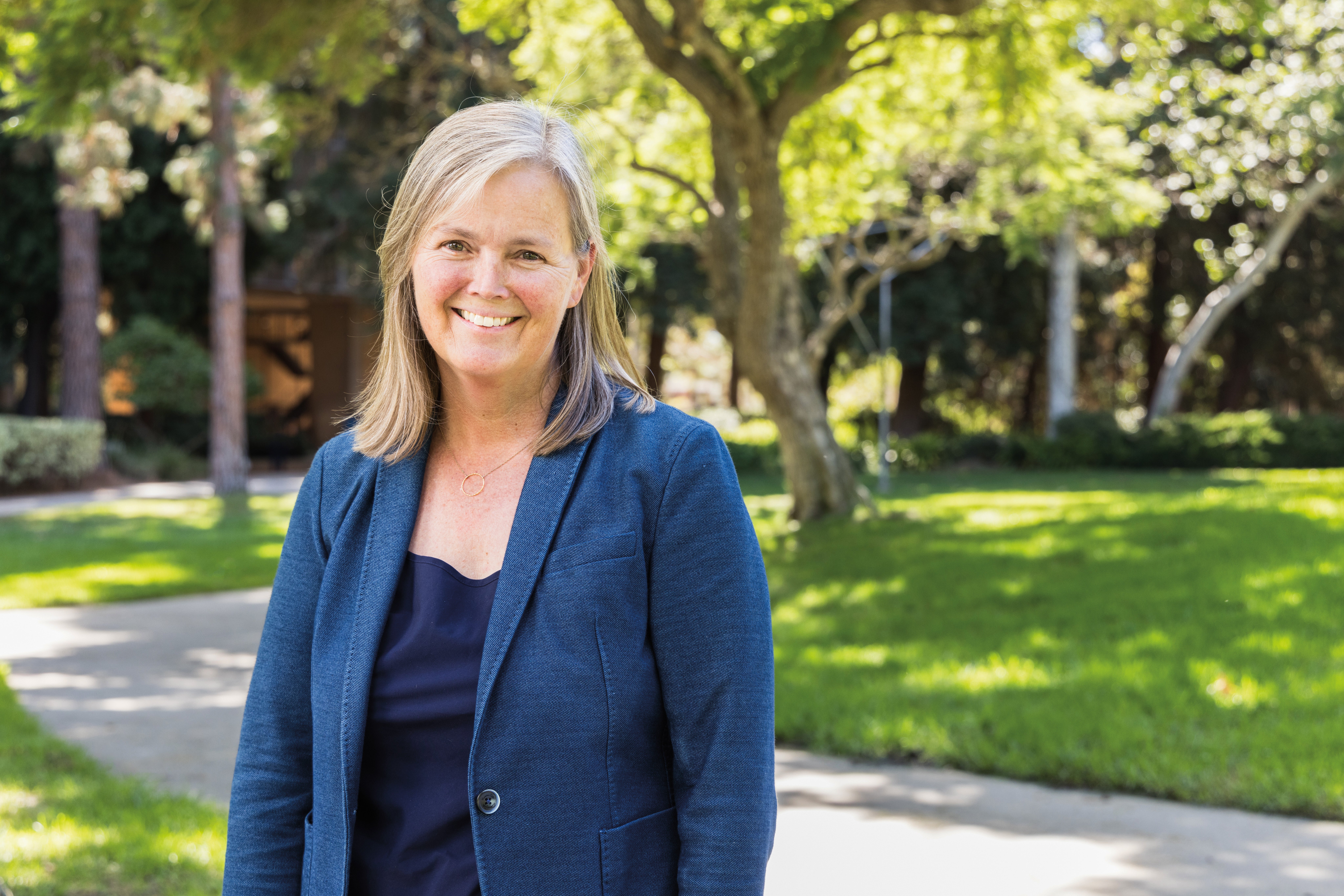
Interview with Karen Hunter Quartz, director, UCLA Center for Community Schooling
The UCLA Center for Community Schooling (CCS) is a campus-wide initiative to advance university-assisted community schools. CCS is led by Karen Hunter Quartz, a UCLA researcher who has been involved in the development of community schools since the earliest days of outreach and planning for the UCLA Community School began in 2006. Quartz spearheaded the design team behind the RFK UCLA Community School and in 2017 served on the design team for the Mann UCLA Community School. She leads a team of researchers and educators who bring a wealth of knowledge, experience, and expertise to the work of community schools.
UCLA Ed&IS: What is the role of the UCLA Center for Community Schooling (CCS) in the California Community School Partnership Program (CCSPP)?
KAREN HUNTER QUARTZ: Our role is to help grantees realize the state’s vision for the CCSPP, to accelerate efforts to “reimagine schools in ways that are aligned with the equity goals that support the hopes, dreams, and aspirations of California’s families.”
UCLA Ed&IS: What does the Center bring to the CCSPP effort?
QUARTZ: CCS was selected as a State Transformational Assistance Center partner because of our deep understanding and commitment to community schooling. With a partnership with two local community schools—the UCLA Community School in Koreatown and Mann UCLA Community School in South Los Angeles—we have more than 15 years of experience supporting, studying and sharing the work of community schools.
Our team brings deep knowledge and on-the-ground wisdom to this effort—earned from working inside community schools. Leyda Garcia, our associate director for professional learning, was the principal of the UCLA Community School more than a decade. Wendy Salcedo-Fierro was the lead social studies teacher at the UCLA Community School and a mentor teacher for the UCLA Teacher Education Program. Brenda Benitez attended the UCLA Community School before graduating from Wellesley College in 2022 and is returning to our team as a community school coordinator. Marisa Saunders is our associate director for research. With decades of policy research experience, her work focuses on K–12 transformation efforts to address long-standing educational inequalities. Our efforts are strengthened by the support of our team of graduate students, as well as the contributions of other UCLA faculty members and research staff.
I also think one of the most important things our team brings to the effort is our commitment to equity and social justice as central to schooling. We have seen and learned its value in our work with the UCLA Community Schools. It is core to who we are and essential to our work with California community schools
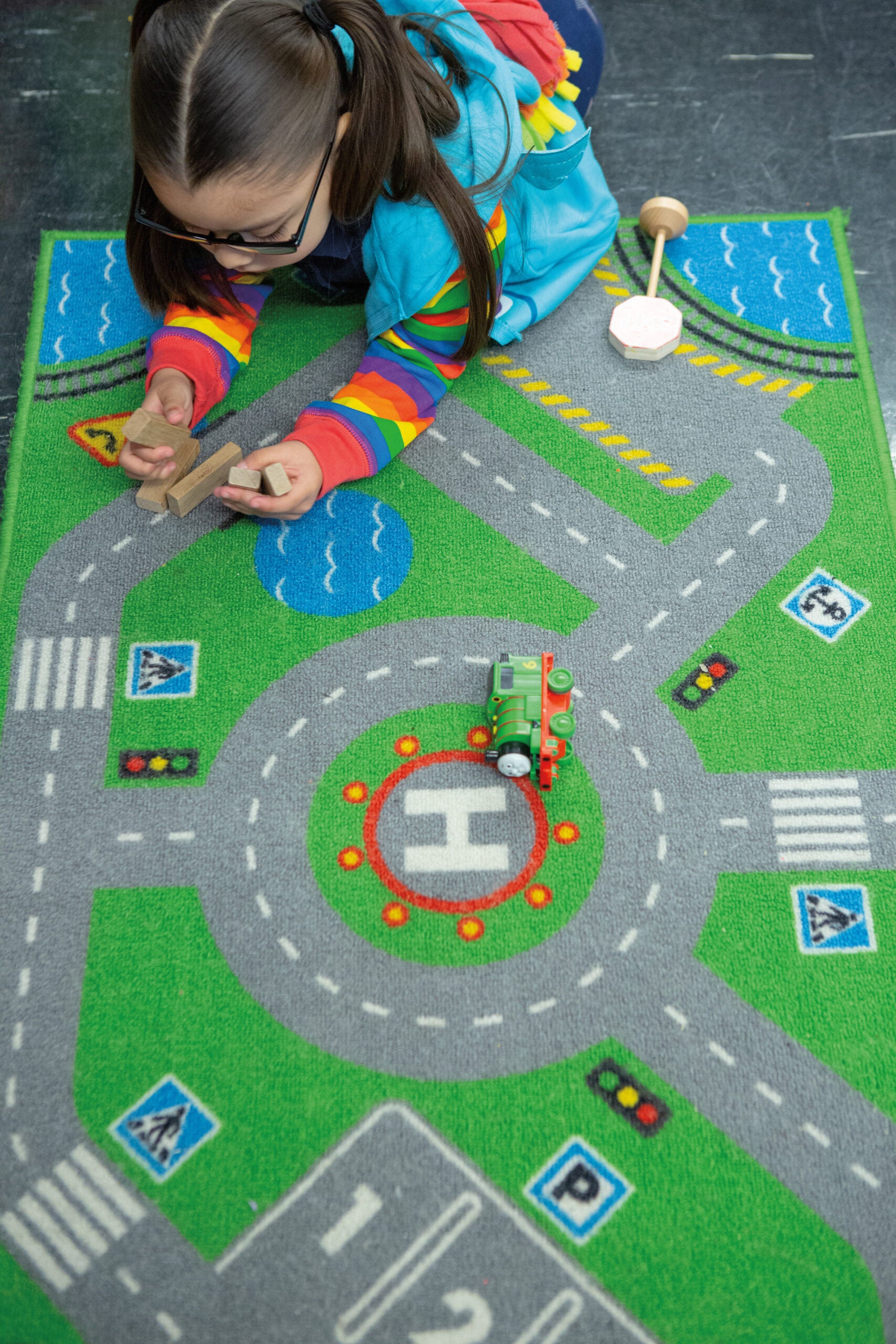
UCLA Ed&IS: What are your key areas of work?
QUARTZ: Our state-center work is guided by a commitment to research-practice partnerships. We collaborate with a set of deep-dive transformation partners to understand community school implementation from a systems perspective—helping build capacity to improve and transform community schooling.
We also help create and curate research-based resources that are aligned with the California Community Schools Framework to help meet the needs of education practitioners in community schools across the state.
Our team also leads the collection and analysis of data from all CCSPP grantee organizations, builds the capacity of grantees to utilize data, and produces data reports to inform and ensure public accountability.
UCLA Ed&IS: Can you give us some specific examples?
QUARTZ: Our team played an important role in grounding the California Community Schools Framework in the work of schools, LEAs, and other partners.
You can see some of this work in a resource that our lead researcher Marisa Saunders helped develop with our partners in the State Transformational Assistance Center (S-TAC), “Diving Deep into the California Community Framework: Identifying Overarching Values.” The document provides an overview of the California Community Schools Framework and introduces its overarching values as a means of helping schools bring the framework to life. These include the development of Racially Just, Relationship-Centered Spaces, Shared Power, Classroom Community Connections, and A Focus on Continuous Improvement. These “values” are highlighted in the “Diving Deep” resource. The document also includes and defines core conditions for learning, proven practices, and cornerstone commitments for community schools.
The idea is to be field setting. It’s to say, “Look, community schooling is not just about implementing a checklist of expanded learning opportunities and partnerships. There is a lot more to this.”
When our work started in May of 2022, the selection and funding of regional technical centers had not yet occurred. We responded by working on the ground. Leyda Garcia and other members of our team and S-TAC partners began working with local communities across the state to identify three deep-dive partner districts and co-lead learning exchanges. With our S-TAC partners, we supported a statewide Collective Learning Space, engaging more than 200 grantees. UCLA Community School teachers and leaders have joined us in this space and on webinars to share their expertise. We have also established communities of practice to support teacher leadership, superintendents, community storytelling, and the use of multiple measures to understand the implementation and impact of this historic initiative. And that is just a partial list.
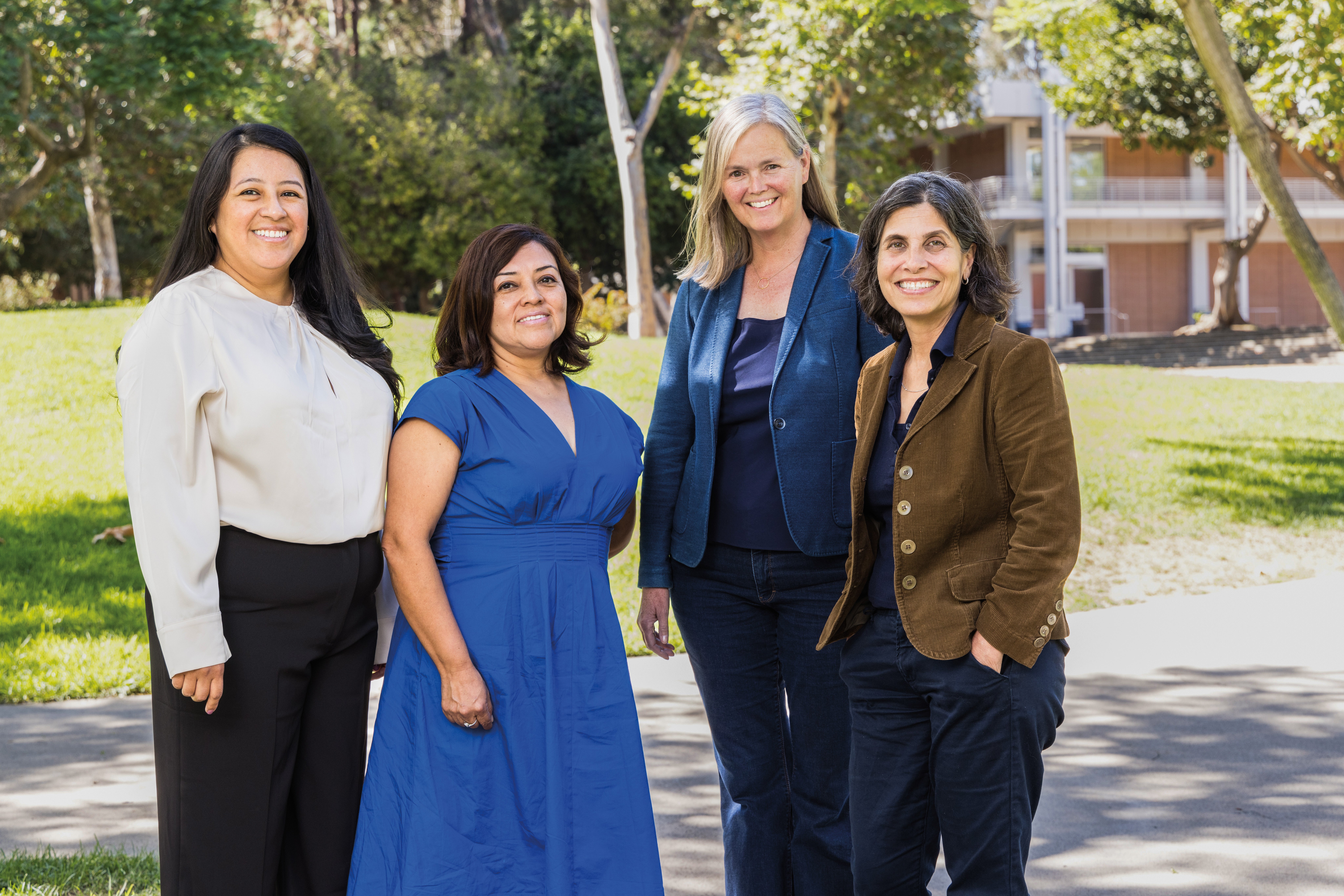
UCLA Ed&IS: What have you learned in your work with UCLA that you hope will inform the development of California’s community schools movement?
QUARTZ: At the core, it’s a lot about teachers and teaching. Too often, community schools are narrowly identified as places with school-based clinics and integrated services. What we have learned working with the UCLA Community Schools is that nothing is going to happen without the deep engagement and mobilization of the teaching faculty and the development of really good instruction. Teachers need to be involved from the start, listened to, engaged in the development of curriculum and instructional practice, and be part of the collaborative leadership of the schools.
Another key is to really listen to the people in your local community. Listen to parents, listen to neighbors, and engage together in democratic deliberation. Who are we? What do we bring? What do we need? What do we envision? How can we make it happen? That’s the grounded work of social change that planned reforms often neglect. Sitting around a table with people in your community and discussing what you want to do and change and make better, and how you will know your school is improving—that to me is the real crux of it. It has to live locally in ways that allow you to do something really different because the reform machinery is set up to replicate rather than invent.
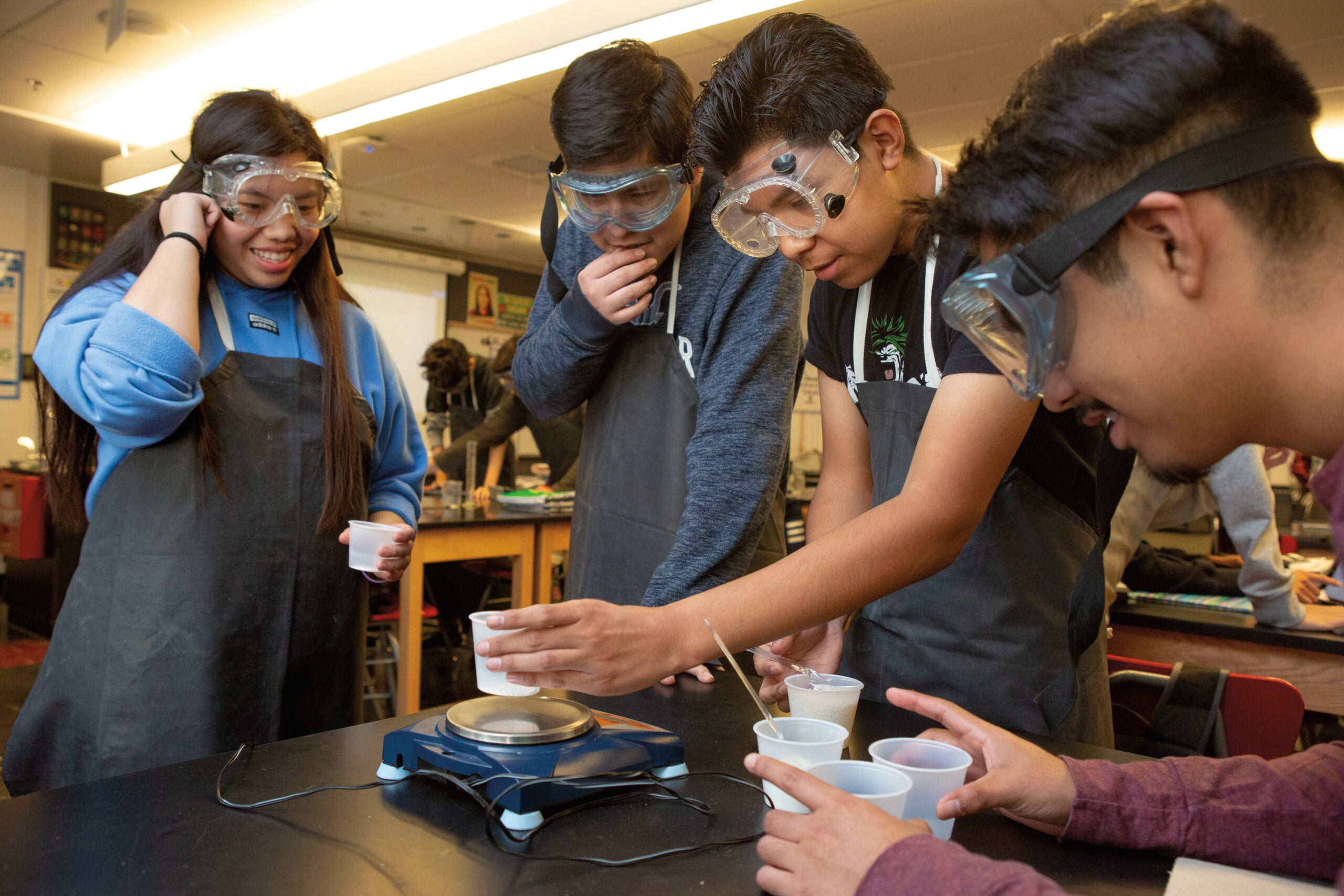
UCLA Ed&IS: What do you want policymakers to understand about the community school effort?
QUARTZ: We want to get policymakers to understand and think about assessment and accountability in ways that further learning and equity.
One big idea is to reframe the accountability debate and use data as a flashlight, not a hammer. At the UCLA Center for Community Schooling, we care a lot about measurement. Early on in the project, we created a multiple measures working group with research leaders from the eight regional TA centers. We developed a white paper, “Measuring What Matters,” outlining a path forward for combining state and local measures to inform the development, monitoring, and improvement of community schooling across California. We are also piloting an online course for grantees to help them develop local measures to track and improve their own implementation and outcomes. Measures such as attendance and graduation rates will always be important, but there’s a richer data landscape to explore, such as performance assessments, school climate surveys, and measures of student well-being. We want to make sure that when we talk about how we know a community school is successful, we are including a variety of good measures that people care about.
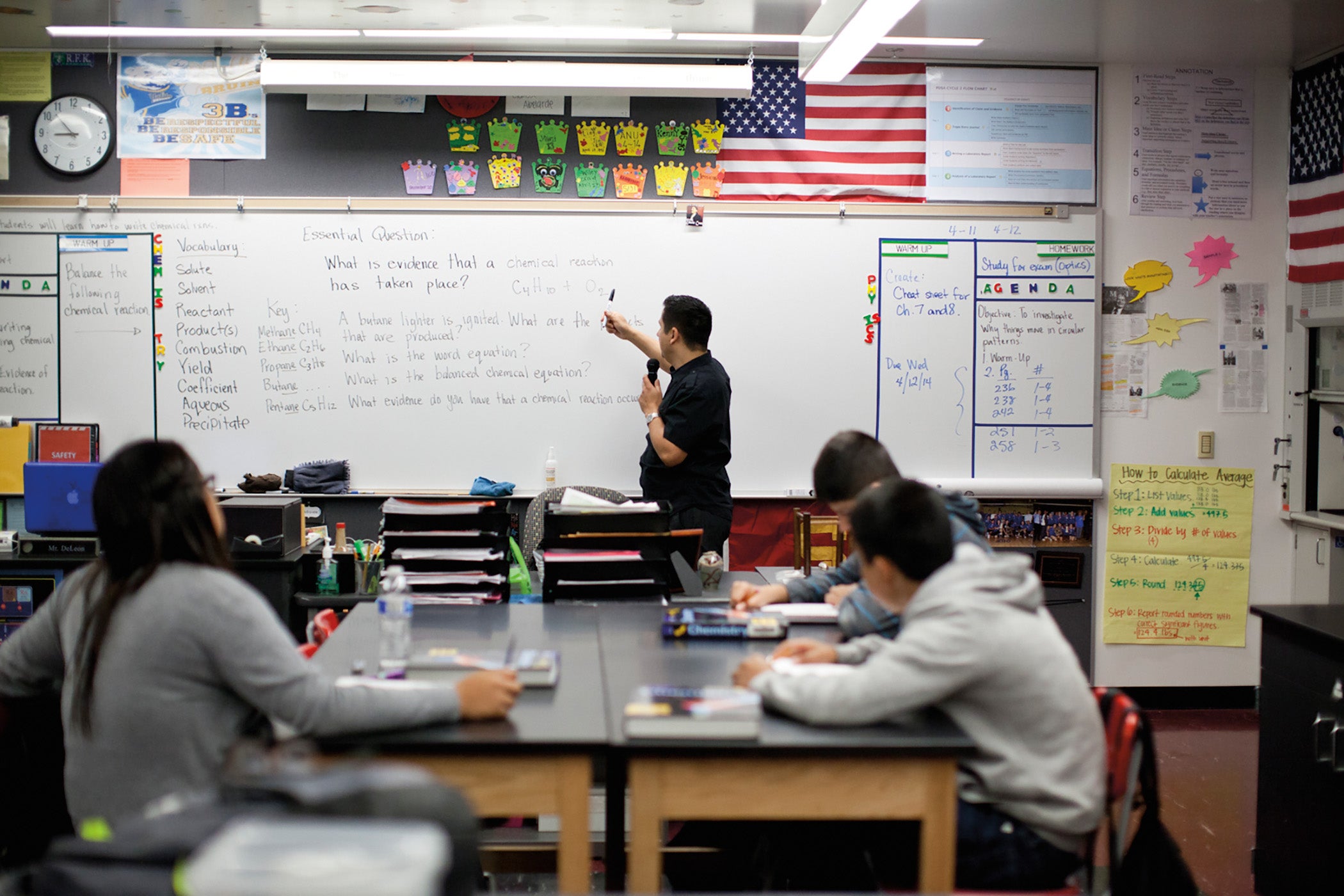
UCLA Ed&IS: What are the challenges ahead?
QUARTZ: One as I mentioned, is to use data to learn. Part of our work is to collect statewide data from grantees using an Annual Performance Report (APR). The APR is a great tool, but it’s too often viewed as a compliance report you have to fill out to send to the state. We’re trying to buck that trend and have people deeply engage in inquiry and learning at their site level and view this as not just a reform, but the way they do school.
The other big challenge is sustainability. There are a lot of people working on blending and braiding funding streams so that community schools outlive this round of reform funding. One strategy we recommend is tapping the potential of K–12 higher education partnerships. UCLA and other universities across the state and country take seriously their civic duty as community school partners. That’s both a challenge and an opportunity. I’m on the national steering committee of the University-Assisted Community School Network. It’s really a civic engagement higher education movement. We are working to support higher education anchor institutions to partner with community schools in mutually beneficial ways that will help secure the future of public education.